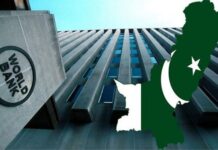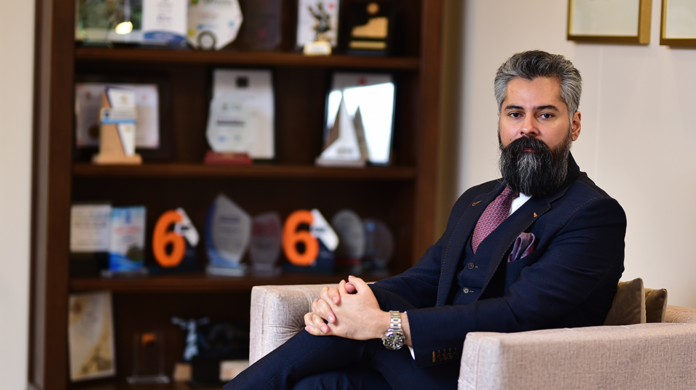“Pakistan has a lack of brick and mortar bank branches, especially at the last mile locations and we need to focus more on scaling geographically if we wish to create a larger impact as a microfinance bank,” stated Mr. Kabeer Naqvi – President & CEO, U Microfinance Bank (U Bank), recently in an interview.
During the conversation on the current state of the microfinance sector in Pakistan, its potential, growth, and impact, Mr. Naqvi spoke about the differences between microfinance banks and commercial banks in Pakistan. “On the liability side, we are just like any other bank, since we do deposit mobilization. However, on the asset side, we remain mission-oriented. As a mission-driven bank, we cater to those segments of the society which have been excluded from financial services for decades.”
Financial inclusion through banking plays a critical role in uplifting communities and empowering people to achieve economic growth. It also is a means to bring the unbanked into the banking net and have an efficient, documented economy. Microfinance banks (MFBs), through an ordinance in 2001, were established to bring financial services to more of the Pakistani population, especially those that are not usually catered to by commercial banks due to various reasons.
MFBs versus Commercial Banks
“The needs of our customers as compared to those of regular banks are mostly similar. A farmer would also need to send his children to school, need medical assistance, build a home, and maybe start a business. They have payment needs, credit needs, savings and insurance needs, and so on. The difference lies in the business model and experience,” he said. While a regular commercial bank might not give out a loan without an audited bank statement or a salary slip from a customer, MFBs on the other hand go out to the customer’s premises – be it a farmer, a livestock owner, or a small kiryana store vendor – and work with income proxies and potential cash flows to evaluate loan approvals. This is a skill that not only makes MFBs different, but also gets them access to a larger population.
Brick & Mortar branches and Digital Banking – not mutually exclusive
U Bank is currently the largest microfinance bank with over 300 bank branches across Pakistan, a majority of which are located in rural areas. As per Mr. Naqvi, this number will be 400 at the end of 2023 and they will continue to scale in the years to come. This is in stark contrast to the prevailing industry norm. Most banks now focus on Digital Banking and are moving towards automation as part of the nationwide digital transformational goals. At a time like this, continuing to aggressively focus on brick & mortar banking branches may be criticized in the wider industry in current times, while digitization is needed to bring efficiency and scale the banking alongside.
Talking about his experience, Mr. Naqvi opined, “We haven’t yet rolled out our digital strategy on a large scale, but our numbers can easily prove the immense potential of brick and mortar presence in Pakistan. To give out loans in rural areas, human to human interaction is a critical factor – it cannot be ruled out entirely in current times. Cash flows need to be created, a customer’s potential income needs to be evaluated, loans are to be given out, and most importantly, collected back. If we want to be a bank of the masses, most of which resides in rural Pakistan, the first touchpoint for now cannot just be a mobile app.”
“Brick and mortar and Digital Banking are not mutually exclusive – both need to go hand-in-hand. But a greater understanding is required of the financial and social standing of the range of audience you cater to. We are working towards graduating people upwards on their income levels and economically enabling them through financial services, literacy, and inclusion. By using our knowledge from the ground, we are moving to scale up physically, while also relaying digital railroads, to truly become a challenger retail bank.”
Performance Indicators and Business Sustainability
Talking about U Bank’s growth trajectory and the numbers that support the bank’s vision of expansion, Mr. Naqvi shared some statistics. “In the past 7 years alone, we have grown our Gross Loan Portfolio from PKR 600 Million to PKR 62 Billion, total deposits from PKR 1 Billion to PKR 100 Billion, and have additionally raised separate investments in treasury worth PKR 125 Billion, which is unique to us. Our canvas-based business model, that has divided our businesses into 6 revenue-making divisions has been able to achieve this exponential growth largely through the physical banking branches only.”
U Bank in 2020, during the COVID-19 crisis, strategically divided its business functions into six canvases: Rural Retail Banking, Urban Retail Banking, Digital Banking, Corporate Banking, Islamic Banking, and Corporate Finance & Investment. This step was taken to ensure business sustainability and longevity during uncertain times.
Financial Inclusion Impossible without Social Inclusion
Financial inclusion aims to provide communities with access to formal financial services that can help expand their agricultural activities, businesses or individual endeavors, to generate better income and improved livelihoods. It brings marginalized and the unbanked populations into the formal financial system. This, however, is not entirely possible without efforts focused towards socially including the excluded segments of society.
Sharing an anecdote from his experience, Mr. Naqvi stated, “There have been many archaic policies and procedures that we demolished over the years that could have been barriers to overall inclusion of the masses. For example, women were not being given loans without permission from their husbands, or they were given smaller loans as compared to men under similar incomes. When we talk about inclusion, it is not just limited to banking, but the overall social cohesion and equality that can be achieved through inclusivity.”
Regulation and National Dialogue for Significant Scale in the MFB Sector
In a country of over 230 million individuals, a huge percentage to date remains unbanked and out of the formal financial economy. The regulatory authorities in Pakistan have been working tirelessly to facilitate the masses and get them into the banking net, yet on a national level, more dialogue and partnerships are required to take these initiatives to scale.
“The size of the problem is only getting bigger with the population increase for which the scale is not close to being big enough. The regulation has been extremely supportive and has evolved, and I am positive that with time, more growth opportunities will be given to the microfinance sector.
If MFBs are allowed to become full scale retail banks, given discount windows like commercial banks, and can become scheduled banks, a larger impact is inevitable. With the diminishing resources, depleting water tables, and impact of the climate change, I would like to see national level dialogue including the public and private sector and the academia to devise real and impactful interventions, especially when it comes to Green Banking,” Mr. Naqvi shared, concluding the conversation.

























Have you lost your hard earned money to:1.Binary option scam?? 2. Forex trading? 3.Romance scam and any other kind of online investment? I have a good news for you. Contact; FUNDRESTORER @gmail[]com I had doubts it was possible to recover the funds I lost to binary options. However, big thanks to Fundrestorer now for helping me recover a huge sum back and still working on full recovery for me. They are nothing but the best. You should contact them..!!!!!!!!!!’
Exceptional service
Get connected with the best crypto recovery agent!!!
Awesome
I think mfb’s move is in line with the current situation in Pakistan. In the future, mfb can serve more Pakistani people and promote Pakistan’s economic development.